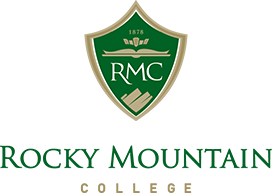Environmental Studies
February 3, 2022 2024-01-22 19:06Environmental Studies
"The truth is that we have never conquered the world, never understood it; we only think we have control. We do not even know why we respond in a certain way to other organisms and need them in diverse ways so deeply." - Edward O. Wilson
The Environmental Program at RMC offers majors in Environmental Science (ESC), Environmental Management and Policy (EMP), and Environmental Studies (EST). Our courses emphasize interdisciplinary studies in the field and laboratory with a broad range of hands-on experiences. Many of our programs include field trips to Yellowstone National Park and the Bighorn and Beartooth Mountain Ranges. Students and faculty also conduct ongoing research projects at sites on the Yellowstone River, which is the longest free-flowing river in the U.S. The proximity of the largest city in Montana (Billings) and abundant natural resources and open land make for an ideal outdoor laboratory to study human interactions and impacts on the environment. In addition, our average class size is about 14 students, with some even smaller. This enables plenty of one-on-one time with faculty and greatly enhances learning opportunities, such as field trips and the option of overnight camping at research sites.
Environmental Studies
The environmental studies major provides students with an interdisciplinary opportunity to investigate the relationship between humans and their environment. Distinct from environmental science, the curriculum in environmental studies is based in the humanities, arts and the social sciences.
Since the Industrial Revolution, the Earth has been radically transformed by human beings, and the pace of this transformation continues to increase. This radical event raises profound questions concerning the relationship between humans and nature. For instance, how can we understand this event historically along with the rise of environmentalism and the need for environmental policy? Is there a pattern to this transformation, and if so, how does it hang together? What is the role of nature in the modern project? What role does the market play in this transformation? It would seem that if we do not understand what is going on here in the bigger picture, many of our efforts to make things better may prove futile.
Should the beauty of nature count for something, how can we communicate natural beauty and its significance in a world that often pushes aside and dismisses it? What of the differential impacts of environmental insults on historically vulnerable peoples of the Untied States and around the world? What are our ethical responsibilities toward nature? What is the place of nature in the human condition, an issue this transformation has also made questionable. These are just a few of the kinds of concerns that environmental studies addresses.
Rocky Mountain College offers the following major in Environmental Studies:
Contact
Rocky Mountain College
1511 Poly Drive
Billings, MT 59102


